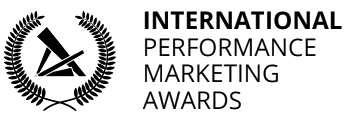- What is a Domain Authority?
- How to Check Your Site Authority?
- What is a DA Score?
- What Affects Domain Authority?
- How to Increase Your Domain Authority Score?
- Get High-Quality Links from Authoritative Websites
- Create Link-Worthy Content and Optimize it
- Get Rid of Bad/Spammy Links
- Optimize Your Website Structure and UX
- Create a Responsive Web Design
- Speed up Your Website
- Boost the Internal Linking Structure
- Make use of Social Media
- Add URLs in the Footer
- Use SSL
- Use Certificates Such as TrustPilot
- Does DA Affect Ranking?
- Why is Domain Authority Important for SEO?
What is a Domain Authority?
Domain authority, or DA, is a metric developed by Moz. It’s calculated primarily on the basis of the quantity and quality of backlinks a website has. Both location of the external link to your site and the quality of the domain it comes from are very important elements affecting the Domain Authority of a website.How to Check your site Authority?
Moz Link Explorer
 Since Domain Authority is a parameter developed by Moz, it goes without saying that it can be checked in this tool.
How to check your Domain Authority? It’s very simple. Just set up a free account on moz.com and then you’ll be able to access the Link Explorer section where you can analyze any website’s DA. Plus, this page is a valuable source of information that is given to you for free and will certainly help you increase the effectiveness of your SEO process.
Moreover, you can also install MozBar, which is a free plugin. Here, only one click provides you with information concerning PA (page authority), DA (domain authority), spam score, and many other valuable metrics.
Since Domain Authority is a parameter developed by Moz, it goes without saying that it can be checked in this tool.
How to check your Domain Authority? It’s very simple. Just set up a free account on moz.com and then you’ll be able to access the Link Explorer section where you can analyze any website’s DA. Plus, this page is a valuable source of information that is given to you for free and will certainly help you increase the effectiveness of your SEO process.
Moreover, you can also install MozBar, which is a free plugin. Here, only one click provides you with information concerning PA (page authority), DA (domain authority), spam score, and many other valuable metrics.
Ahrefs
Ahrefs is another tool that can help you estimate the value and quality of your website. Using this tool, you can check the Domain Rating. How to do it? Simply enter your website address in the search bar. Then, enter the Overview section and you’ll see DR standing for Domain Rating in the upper left corner.SEMrush
 SEMrush also offers its unique metric for checking your website quality in Google’s eyes (of course, these are only estimations that aren’t 100% reliable or accurate).
So, what’s the name of the metric? It’s called Authority Score. Similarly to Ahrefs, you just have to enter the website address in the search bar and look for an Overview section with this metric.
SEMrush also offers its unique metric for checking your website quality in Google’s eyes (of course, these are only estimations that aren’t 100% reliable or accurate).
So, what’s the name of the metric? It’s called Authority Score. Similarly to Ahrefs, you just have to enter the website address in the search bar and look for an Overview section with this metric.
What is a DA Score?
A Domain Authority score is a score evaluating the quality of a domain in question. Every website can get a result ranging from 1 to 100. As you can guess, the higher the result, the better. The DA can be used as a metric comparing the competitiveness and quality of various websites. Thanks to this metric, you can monitor the effectiveness of performed SEO activities and link building or select valuable domains for backlinks.What is a Good Domain Authority Score?
Actually, there is no one clear-cut answer to this question, as Domain Authority is a comparative metric. This means that in order to evaluate the DA of your website, first you should take a look at your market rivals. In some industries, a DA reaching 55 will be considered satisfying, while in others a DA amounting to 80 may be seen as low. Therefore, to estimate if your Domain Authority is good or bad, you need to take a closer look at your market rivals and their results.What are the Benefits of a High Domain Authority Score?
High DA score websites have many high-quality external links that lead to them and are usually considered a quality source of information. Therefore, they’re displayed in higher positions in the search results and are willingly chosen as partners for link building, paid articles, and sponsored posts.PA (Page Authority) vs. DA (Domain Authority)
Are you wondering what the difference between Page Authority and Domain Authority is? Page authority (PA) is a metric also developed by Moz. Its purpose is to show how a given page, rather than the entire website, does in the search results. Similarly to the Domain Authority, PA can be anything from 0 to 100. When calculating this parameter, Moz takes into account more than 40 different factors. The PA parameter doesn’t analyze the frequency or quality of keywords and content optimization. Page Authority is calculated based solely on the quality of the external links. The better the source, the better and more powerful your page. Why? Because the search engine receives a signal informing it about valuable content.
PA and DA are comparative parameters that can be used to estimate the quality of your and your market rivals’ websites and their backlinks.
The better the source, the better and more powerful your page. Why? Because the search engine receives a signal informing it about valuable content.
PA and DA are comparative parameters that can be used to estimate the quality of your and your market rivals’ websites and their backlinks.
What Affects Domain Authority?
There are more than 40 factors affecting your website’s DA score. Every website wanting to reach top positions in the search results should constantly improve the quality of its content, optimization, and backlinks to improve its Domain Authority. What factors have an impact on the DA?Number of Websites Linking to Your Website
As you probably know, the number of linking domains is much more important than the number of links. Therefore, it’s better to have 10 links from 10 domains than 10 links from 2 domains. The more websites link to your page, the stronger the signal sent to Google that your site is a valuable source of information willingly cited by others.Quality of the Linking Websites
Each website that links to your page has a given authority score. This is an important factor affecting the power of the link. The greater the authority of the linking page, the higher the quality of the link. For this reason, you should avoid obtaining a large number of SEO links from low-quality sites, as this may have a negative impact on the SEO process and can even decrease your visibility in the search results.Link Profile Diversification
In the link building process, it’s important to diversify the origin of links, because many links coming from one site have a much lower value than a few links from high-quality domains. If you insist on getting numerous links from low-value sites, they can actually do more harm than good. This is why it’s so crucial to diversify not only websites that link to your page but also the link profile (these should be articles, forums, profiles, social media, bookmarking sites, as well as different types of links).Topical Links
How to raise Domain Authority? You should focus on acquiring links coming from websites that are thematically similar to yours. This will help you build your topical authority and will position you as an expert in a specific area. After many updates of the search engine algorithms, Google is able to recognize what the page is about. Therefore, you should focus on creating a consistent brand image.Link Location on the Site
You might have not known it but link placement on the website affects its power and influence. So, if you want to obtain a link that will truly benefit your SEO process and DA, you should focus on links placed directly in the content. They’re more powerful in comparison to links in the footer or menu that usually have lower quality.Keywords in the Anchor Text
Phrases in the anchor text (the content placed in the HTML code between the <a> and </a> tag displayed as a link) are one of the most important elements that Google robots analyze when determining the value of links. Although EMA (exact match anchors, meaning anchors that are the same as the name of the website, category or product they link to), are effective, it’s very easy to cross the line and overuse them. This may draw Google’s attention (such links aren’t entirely natural) and can result in a penalty. That’s why, when creating backlinks you should keep a balance between clean URLs and anchor links.
Content Surrounding the Link
When evaluating link quality, Google’s robots take into account correctly submitted and thematic text that is next to the link. Therefore, unique, thematically related content is as important as links themselves. If you have a forum and a comment about bikes, it’s pointless to add a link to a software house website there. It won’t bring any benefits. In fact, it can do more harm than good by confusing both Google robots and users.Site Structure and User-Friendliness
Is the website you want to obtain links from user-friendly? Does it load fast? Does it have an intuitive design? Is it responsive? All these elements also have an impact on the quality of the website. So, if you want to increase your Domain Authority, make sure your links come from reliable, intuitive, and user-friendly pages.Spam Score
Spam Score is a metric available in Moz (the Link Explorer section). It determines the percentage of spammy links to the site that translates into a potential risk of receiving a Google penalty. Moz uses machine learning to calculate this metric. The tool scans the site looking for elements characterizing spammy websites and determines the score (in percentages) based on them. A high Spam Score is a red flag. In this case, you should analyze the site carefully and work on improving its quality.How to Increase Your Domain Authority Score?
Increasing the DA score increases your chances of improving the position of your site in the search results. What to focus on? Check out crucial elements:Get High-Quality Links from Authoritative Websites
Obtaining backlinks from authoritative websites with high parameters will help you quickly improve your DA. If someone links to you, Google thinks that you’re a valuable source of information for the linking page. Therefore, if reputable sites with impressive DA, PA, and other parameters have a link to your website, it has a beneficial impact on your visibility and positions in the SERPs. How to obtain such links? You can try guest posting, paid articles, link exchange or find broken links on the site, write to the owners and ask them to replace the old link with your link (offering them quality, thematically related content).Create Link-Worthy Content and Optimize it
If you create quality content, people will link and share it. It’s simple, isn’t it? Your website should be optimized for SEO because it has a direct impact on traffic and visibility in the search results. Moreover, properly prepared and optimized content boosts UX and makes indexing easier for Google robots. If you want to be successful, pay particular attention to:- optimizing the page code, which means setting appropriate title, meta and alt descriptions as well as marking important elements in the text;
- uploading a sitemap and robots.txt files;
- keeping a proper structure of headers within the entire site;
- creating a blog with regularly updated content – it goes without saying that high-quality content is read, recommended, and shared by users visiting the site more enthusiastically.
Get Rid of Bad/Spammy Links
It’s a good habit to regularly check backlinks to your site. Thanks to this you can find and remove links that are toxic and can have a negative impact on the Domain Authority. It also applies to broken links and references to incorrect sites. Keeping your finger on the pulse can save you lots of hassle. To check the condition and status of backlinks, you can use tools such as SEMrush, Ahrefs, OpenLinkProfiler, or Open Site Explorer.Optimize Your Website Structure and UX
Attracting traffic to your site isn’t possible without intuitive navigation and a user-friendly layout. Try to put yourself in the users’ shoes and think what elements are important to them. Short loading time, responsive design, clickable CTA buttons, visible links, menu elements that can be easily clicked, attractive graphics, and so on. Taking care of such aspects will help you make your website more attractive for users who will want to share it with friends, family, and communities.Create a Responsive Web Design
Year by year more and more users use mobile devices to browse websites and finalize transactions. For this reason, reaching top positions in the SERPs requires investing in mobile-friendly design. If you don’t have a responsive web design, then it means that your site isn’t displayed correctly on smartphones and tablets. As a consequence, it may deter users and potential customers, thus increasing your bounce rate. How to check if your page is displayed properly on mobile devices? Use the Mobile-Friendly Test tool.














Great blog to learn about domain authority and increase DA for your business.